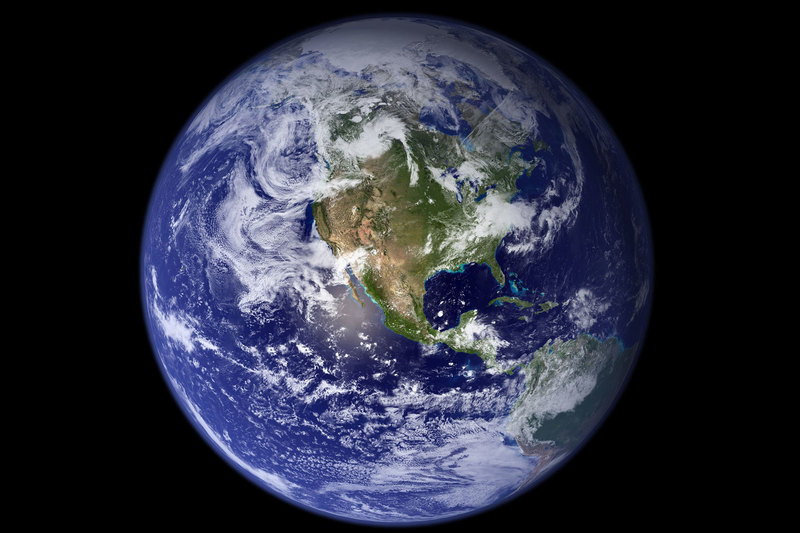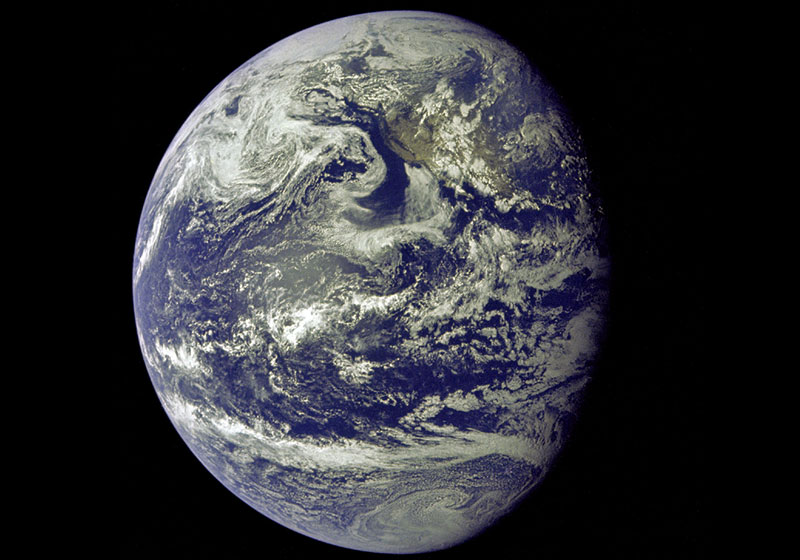50th International Earth Day – ‘It takes a crisis’
22 April 2020 | Story Kevin Winter. Voice Ashley Ellis. Read time 8 min.
The 50th anniversary of Earth Day, amid the COVID-19 crisis, is a timely reminder that everyday choices can have positive and negative effects on people and the planet, writes Dr Kevin Winter of the University of Cape Town’s (UCT) Department of Environmental and Geographical Science.
Earth Day was first observed on 22 April 1970 when more than 20 million young Americans took to the streets to protest the pollution of rivers and air, and the impact that this pollution had on public health.
Surprisingly, there was no national legislative control over industries, for example, from releasing pollution into the atmosphere or discharging toxic waste into rivers. The public were struggling to make their voices heard.
It took a crisis.
In January 1969 an oil spill off the coast of Santa Barbara, California, had a devastating impact on wildlife, and the incident became a catalyst for changing public perceptions about protecting the environment.
It takes a crisis
Sadly, it always seems to take a crisis, but it changed the environmental history of the United States. In December that year at a United Nations Educational, Scientific and Cultural Organization (UNESCO) conference, peace activist John McConnell proposed that a national day should be set aside to honour the earth.
The idea was taken further by Senator Gaylord Nelson, who organised a mass environmental education campaign in schools, colleges and universities, which resulted in mass demonstrations for environmental reform on what is now known as Earth Day.
The event resulted in the passing of the USA Clean Air and Clean Water acts, and the establishment of the US Environmental Protection Agency. Subsequently, Earth Day became an international event that is coordinated by the Earth Day Network and raises awareness about taking action to reduce human impact on the planet.
It is not about a single day, but rather “Earth Day is every day, and anywhere you are”. The theme for Earth Day 2020 is about taking climate action.
Responding to Earth Day every day
Earth Day, during the COVID-19 crisis, is a timely reminder that everyday choices can have positive and negative effects on people and the planet. Currently more than half of the world’s population is in some form of lockdown. For many people, this is the first time that they are experiencing a global crisis in which no one is left untouched.
“For many people, this is the first time that they are experiencing a global crisis in which no one is left untouched.”
There is fear and an instinct to survive the crisis; the painful loss of loved ones; and for others, the crisis has exacerbated hunger, deepened their insecurity and the struggle to provide for others.
However, in all the despair, there are signs of hope: a global society that is learning to empathise, to be more compassionate to others and show kindness. These attributes are all encouraged in environmental education programmes that help care for the earth.
Nature is taking a breather
The Apollo 11 mission captured a famous photograph, taken on 17 July 1969, showing the earth as the blue planet, covered in clouds, and the vast continent of Africa. It was an inspiring photograph that showed the beauty of the planet and its fragility as it hung in the blackness of space.

Recently, photographs posted on social media show the effect of curtailed movement and activity during the lockdown. It is inspiring people in a different way because it shows how the earth is rebounding.
People in Punjab, India, are seeing the peaks of the Himalayan mountains because of the decrease in pollution – some report that this is the first time that they have seen this in 30 years. We shouldn’t be that surprised when nature rebounds. It is what we can expect when there is a reduction in air pollution or in the flow of pollutants that are being discharged into rivers and lakes.
However, the breather might be short-lived.
Neighbourhoods finding each other
People do care for others – it’s our nature. It was evident in Lombardy, Italy – one of the worst-hit regions by the virus – when citizens consoled each other through music, songs and poetry shared from the balconies and windows of their apartments.
In parts of Cape Town, neighbours are engaging in a daily ritual of greeting each other from the front of their homes at a fixed time each day while adhering to the lockdown rules. Meanwhile, they are communicating with each other via social media and getting to know each other, some for the first time in years of living on the same street, and in so doing are supporting each other.
“These are lessons in caring for people, in looking out for others.”
These are lessons in caring for people, in looking out for others, and in developing key skills and attributes that promote caring for the planet by learning to live thoughtfully and generously.
Lessons in addressing climate change
Two things could happen in a post-COVID-19 world.
The first is that we go back to ‘normal’ as quickly as possible. The economy is cranked up, we work harder, travel more and go back to a frenetic, demanding world that is hell-bent on recovering from the shock of COVID-19. We will have learnt very little. The environmental impact will continue, and we will be surprised only by the fact that it becomes more polluted.
The second response is to create a different future by taking the lessons learnt from COVID-19. We can do this by:
- being better equipped to anticipate local and global risks
- changing how we work, how we get to work and what we do at work – staying at home could be more productive for some
- reducing the impact on the environment by reducing our dependence on non-renewable energy sources and reducing waste
- ensuring protection and support for vulnerable people
- building better connections with people, enriching interactions, and offering support when needs arise
- establishing a credible and representative mass environmental movement for sustaining the planet.
Now, more than ever, South Africa needs to develop its own mass environmental movement that can address much needed social, economic and political reforms that are underlying imperatives for a sustainable future.
Earth Day 2020 in the context of COVID-19 is a timely reminder that our actions affect people and the planet. The spread of COVID-19 has taught us to say to our loved ones and others: “Keep safe.”
How about extending this concern to the earth, especially on Earth Day?
 This work is licensed under a Creative Commons Attribution-NoDerivatives 4.0 International License.
This work is licensed under a Creative Commons Attribution-NoDerivatives 4.0 International License.
Please view the republishing articles page for more information.










